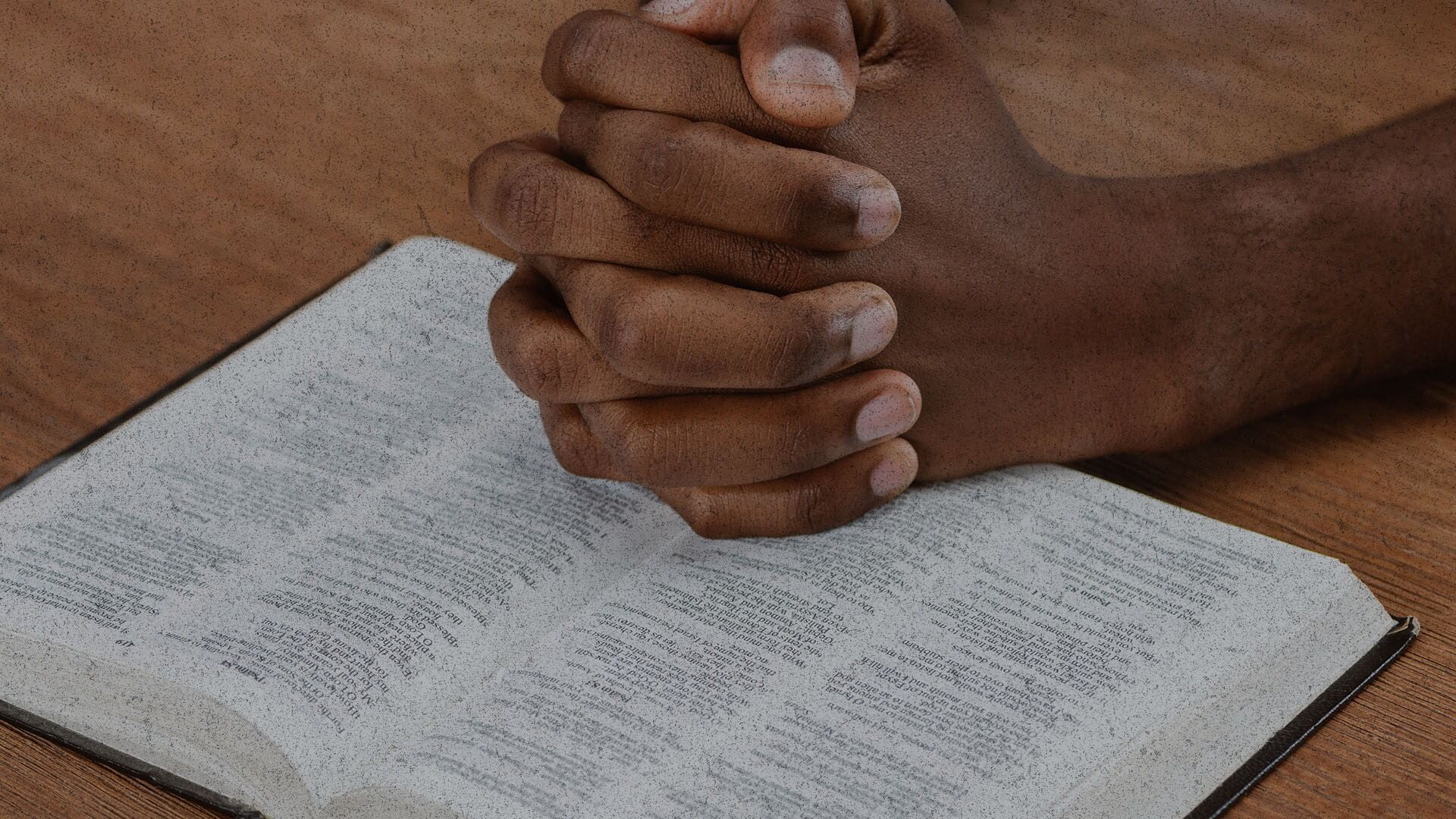The Best Way to Pray (Matthew 6:5-8)

Big Idea: Don't make prayer into a show or a set of rules. Focus on praying in relationship with other believers and with God.
Let me begin today with a brutal truth: prayer is hard.
A publisher asked a well-known pastor and author to write a book on prayer. He admitted that the book's writer would need to be older, more experienced, and more prayerful than he was. He suggested some other names.
The publisher smiled. He had asked those authors too, and they said the same thing. “Who can write or speak at any length easily on the mystery of prayer?” he asked.
I love what the great Dr. Martyn Lloyd-Jones said about prayer. On one hand, he said, “Prayer is beyond any question the highest activity of the human soul.” On the other hand, “Everything we do in the Christian life is easier than prayer.”
We know that prayer is essential. We hear stories of others who pray for hours, and we feel discouraged and defeated. We know that prayer is important. When we pray, we talk to God who rules and controls all things. But we still find prayer difficult even though we know it’s important.
I want to talk about prayer with you this week. I’m not going to be talking about prayer for those who’ve already got it all figured out. I’m going to be talking about prayer for the rest of us, those of us who feel like we’re still beginners at prayer. The place to start is by acknowledging that prayer is hard.
The Place to Start
The place to start is the same place that the disciples started in learning prayer. In Luke 11:1 we read, “Now Jesus was praying in a certain place, and when he finished, one of his disciples said to him, ‘Lord, teach us to pray, as John taught his disciples.’” I love this. Want to learn how to pray? Ask Jesus to teach you. Jesus doesn’t shake his head in disgust at those of us who struggle to know how to pray. He’s got all the time in the world for people like us.
This week I want to look at how Jesus answered their request. It’s interesting that Jesus doesn’t focus on the will to pray. He doesn't provide a theory of prayer.
He didn’t teach them how long their prayers should be, or at what time of day they should pray, or how many times each day they should pray, or what they should feel as they pray, or whether they should be standing or sitting or kneeling, or if they should close their eyes and fold their hands, or whether they should lift their hands and eyes to heaven. (Kevin DeYoung)
Instead, he says, “Pray then like this” (Matthew 6:9). And just before showing them how to pray, Jesus gives us two mistakes that we want to avoid that will kill our prayer lives.
Two Mistakes
Why do we struggle to pray? It may be that we’re making one of the two mistakes that Jesus highlights in verses 5 to 8.
Mistake #1: We turn prayer into performance art.
Here’s one of the mistakes we can easily make. If we make it, it’s guaranteed to kill our prayer lives. It’s to pray only when others are looking. It’s to try to impress other people with our prayers. It’s prayer as performance, and it’s deadly.
Read what Jesus says:
And when you pray, you must not be like the hypocrites. For they love to stand and pray in the synagogues and at the street corners, that they may be seen by others. Truly, I say to you, they have received their reward. But when you pray, go into your room and shut the door and pray to your Father who is in secret. And your Father who sees in secret will reward you. (Matthew 6:5-6)
Here’s how you know you struggle with this: that you pray only when called upon in some public setting. When prayer becomes a performance sport, Jesus says, it’s deadly. You may get applause from those who overhear your prayers. They may think you’re really holy. But God won’t be impressed. And chances are you won’t have a very good prayer life when you’re out of the spotlight either. It will kill your prayer life.
Don’t pray just to impress other people.
But here’s the other mistake we can easily make.
Mistake #2: We turn prayer into a formula.
Read what Jesus says in verse 7: “And when you pray, do not heap up empty phrases as the Gentiles do, for they think that they will be heard for their many words.”
It’s almost as if these people had discovered a formula for prayer. First, you say this, then you say that. When you follow the formula, then God will listen.
Imagine if I treated my relationship with Char this way. Imagine if I studied a bunch of romantic comedies for romantic tips, memorized a bunch of Hallmark cards, and then tried to combine all of this into a formula for how to romance my wife. I’d be missing something important: relationship. I’d be missing the person right in front of me. It would be much better for me to speak to her from my heart, even if my words were much less articulate.
In verse 7, Jesus warns us against a formulaic approach to God that thinks that if we say certain things the right way that God will hear us.
“Prayer is not a formula,” writes Kevin DeYoung. “Prayer is not an incantation. Prayer is not a recipe. Prayer is a relationship.”
Don’t make these two mistakes. Don’t turn prayer into performance art, and don’t turn prayer into a formula.
Two Relationships to Embrace
How then should we pray? Jesus shows us. He doesn’t just tell us. He actually shows us.
What follows is a prayer that is wonderfully simple. It only takes a few minutes to pray. We don’t have to pray for hours and hours. We don’t have to copy this prayer word for word. Jesus says, “Pray then like this…” We can use this prayer as a model, a starting point, an outline, an example of a way we can pray, and the things we can pray for. It’s a training prayer to direct our attention to where it should be.
Jesus leads us right into two relationships that will help us a lot with prayer.
Relationship #1: Pray with other believers.
Read the beginning of verse 9. Jesus begins, “Our Father…” It’s easy to miss that first word. This is not a prayer for the individual Christian. It’s meant for the life of the church. In other words, this is a family prayer.
Of course, it’s okay to pray alone. In fact, Jesus has just told us to pray alone. In verse 6 he said, “But when you pray, go into your room and shut the door and pray to your Father who is in secret. And your Father who sees in secret will reward you.”
But I think it says something that there’s no first-person pronoun in the entire prayer. One of the ways we can learn to pray is to learn to pray in community. We’re meant to learn to pray with others.
I want to confess that this can be really hard at first. For years, I struggled to pray with Char. It was actually in the middle of one of the hardest times in our life that we were driven to learn how to pray together. Now that we’ve learned how to do this, I can’t imagine not praying together with Char. Even when I struggle to pray on my own, I’m strengthened in my prayer life because I don’t just pray alone. I have someone to pray with me.
You don’t have to try to figure out your prayer life by yourself. He’s given you brothers and sisters to help you. One of the reasons we tend to struggle in prayer is because we try to do it by ourselves. Jesus takes some of the pressure off right at the start. You don’t have to depend only on yourself. Pray with others.
Don’t just pray alone. Lean on others. You don’t have to live the Christian life on your own. You’re part of a family. So ask for help with others. Pray with them. Ask for them to pray for you. Pray for them too. Pray with other believers.
Here’s the other relationship that will help you a lot in your prayer life.
Relationship #2: Focus on your Father in heaven.
I love that Jesus says, “Our Father in heaven.”
Prayer isn’t a performance art and it isn’t a formula. Prayer is a relationship with your Father in heaven. I love how Paul Miller puts it: “Oddly enough, many people struggle to learn how to pray because they are focusing on praying, not on God.” Jesus helps us with this by shifting the focus away from just prayer to the One to whom we’re praying: to our Heavenly Father.
And what a relationship. Notice two aspects to this relationship:
It’s a relationship of intimacy.
Jesus says that we can come to him and call him our Father. What does this mean? It means that prayer is highly relational. We have a special relationship with God. He is our Father. We come to God as his children.
I love how Paul Miller puts it in his book A Praying Life:
You are the center of your heavenly Father’s affection. That is where you find rest for your soul. If you remove prayer from the welcoming heart of God (as much teaching on the Lord’s Prayer does), prayer becomes a legalistic chore. We do the duty but miss touching the heart of God. By coming to God “weary and heavy-laden,” we discover his heart; heaven touches earth and his will is done.
We have much more to learn about praying, but by coming like a little child to our Father, we have learned the heart of prayer.
This presumes, of course, that we’ve been brought into a relationship with God. It means that we’ve been made children of God. It’s not our natural state. John 1:12 says, “But to all who did receive him, who believed in his name, he gave the right to become children of God.” What an incredible privilege. As J.I. Packer wrote:
In adoption, God takes us into his family and fellowship—he establishes us as his children and heirs. Closeness, affection and generosity are at the heart of the relationship. To be right with God the Judge is a great thing, but to be loved and cared for by God the Father is a greater. (Knowing God)
You are on very close terms with God. He is your Father. He cares for you. He has a tender heart for you. He is ready to hear from you.
It’s also a relationship in which we have access to someone who is much greater than us.
Jesus says, “Our Father in heaven.”
We’re talking about God, the creator of heaven and earth, the one who’s called a consuming fire. Look at Isaiah’s close encounter with this God:
And the foundations of the thresholds shook at the voice of him who called, and the house was filled with smoke. And I said: “Woe is me! For I am lost; for I am a man of unclean lips, and I dwell in the midst of a people of unclean lips; for my eyes have seen the King, the LORD of hosts!” (Isaiah 6:4-5)
A few years ago, someone wrote a book called The God Who Smokes. It’s not about cigarettes. He says that God is:
…a God who is transcendent, majestic, infinite in righteousness, who loves justice as much as He does mercy; who hates wickedness as much as He loves goodness; who blazes with a fiery, passionate love for Himself above all things. He is Creator, Sustainer, Beginning and End. He is robed in a splendor and eternal purity that is blinding. He rules, He reigns, He rages and roars, then bends down to whisper love songs to His creatures.
That’s the God we’re talking about.
Your Father is enthroned over all the earth. He reigns over everything. He holds history in his hand. “All the nations are as nothing before him, they are accounted by him as less than nothing and emptiness” (Isaiah 40:17). He sits on heaven’s throne.
He’s your Father. He’s in heaven. He reigns over everything. He cares for you. He loves you. You matter to him. He’s eager to hear from you.
Putting It Together
Let’s take a moment to put this together.
We started out by saying that prayer is hard. I certainly find it to be hard, and you probably do too.
Here’s something that can help. Don’t turn prayer into performance art or formula. Focus on praying in relationship with other believers and with God.
No religiosity. No performance. No cold formality. No struggling alone. Instead, a Father who really cares for you and is ready to hear whatever is on your mind.
We’re going to look more at the prayer in the upcoming messages, but let’s start here. Let’s start by admitting that we find prayer hard. And then let’s set aside trying to impress anyone. Let’s also set aside trying to just follow a formula. Let’s lean into relationship: that we can ask for help from other believers as we learn how to pray, and that you have a Father — a heavenly Father no less — who wants to hear from you.
Because that changes everything.





